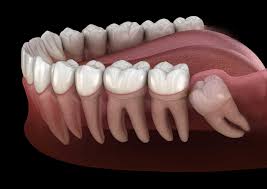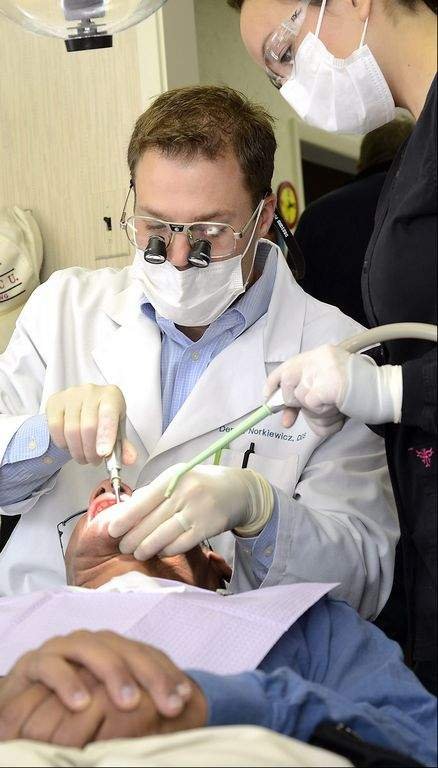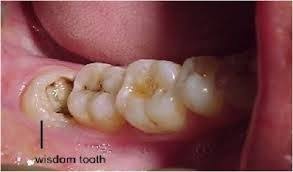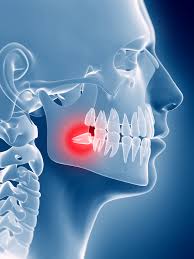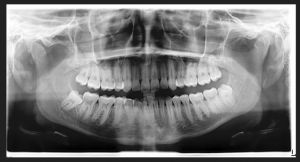Wisdom tooth pain is a common dental issue that many people experience at some point in their lives. Wisdom teeth are the final set of molars to develop, usually emerging in the back corners of the mouth during the late teenage years or early twenties. But did you know that understanding the cause of this pain is crucial for effective treatment and relief?
In this blog post, we will delve into the causes, treatments, home remedies, and prevention strategies for wisdom tooth pain so that you can be better equipped to handle this uncomfortable situation.
From impacted wisdom teeth to overcrowding, infections, and gum disease, we will explore the different reasons behind the pain and provide you with practical home remedies for relief.
Moreover, we will discuss professional dental treatments and preventive measures, ensuring you have all the necessary information to maintain your oral health and avoid unnecessary suffering.
Key Takeaways
- Understanding wisdom tooth pain requires recognizing potential causes, such as impaction, infection and gum disease.
- Professional dental treatments are necessary to address the underlying cause of wisdom tooth pain and prevent Complications.
- Practicing good oral hygiene, seeking early intervention & maintaining proper nutrition can reduce the risk of wisdom tooth pain.
Understanding Wisdom Tooth Pain
Wisdom tooth pain, often referred to as wisdom teeth pain, can be attributed to a variety of causes, including:
- Impaction
- Infection
- Gum disease
- Overcrowding
Wisdom teeth, also known as third molars, are the last set of adult teeth or permanent teeth to develop. These permanent teeth usually begin to grow at the back of the mouth between the ages of 18 and 30. When wisdom teeth grow, they often cause complications such as crowding or impaction if there isn’t enough space for them to emerge properly. It’s estimated that approximately 70% of people have at least one impacted wisdom tooth. Identifying the origin of your wisdom tooth pain aids in choosing the best treatment option, whether it’s home remedies or medical interventions.
As wisdom teeth emerge, pain and discomfort may occur due to insufficient space in the jaw or incorrect positioning of the tooth. Bleeding or swollen gums, soreness, and difficulty in opening the jaw are just a few indications of wisdom tooth pain. The upcoming sections delve into the specific causes of wisdom tooth pain, offering helpful tips and remedies to ease your discomfort.
Impacted Wisdom Teeth
Impacted wisdom teeth refer to partially emerged or hidden wisdom teeth that can cause oral health issues and affect the health of surrounding teeth. Impacted wisdom teeth can press against neighboring teeth, potentially causing misalignment or damage. Impaction can also occur in the soft tissue, making removal more complex. When wisdom teeth become impacted, they can cause harm to surrounding teeth, cyst formation, and a decrease in oral hygiene. Compared to other teeth, wisdom teeth are more likely to become impacted and cause problems with eruption and alignment. As a result, impacted wisdom teeth can lead to pain, swelling, and potential damage to surrounding teeth, often requiring professional dental intervention.
Typically, the long-term solution for an impacted wisdom tooth involves tooth extraction. However, while awaiting a procedure, proactive steps can be taken to effectively manage pain. Using natural remedies with anti-inflammatory properties, such as cold compresses and herbal solutions, can help alleviate wisdom tooth pain and provide temporary relief.
Infection and Gum Disease
Infections and gum disease are caused by bacteria that accumulate in the mouth, resulting in inflammation and irritation of the gums which can manifest as pain, swelling, and bleeding. Wisdom teeth can potentially lead to infections and gum disease due to the trapping of food and bacteria around the tooth, resulting in inflammation and irritation of the gums. Impacted wisdom teeth, if not properly managed, can contribute to periodontal disease by creating deep pockets where bacteria thrive, increasing the risk of serious gum problems.
The indications of infections and gum disease include pain, swelling, and bleeding of the gums. In cases where infections or gum disease are the cause of wisdom tooth pain, treatments may include antibiotics, dental surgery, and other alternative therapies.
Maintaining good oral hygiene is paramount in warding off gum disease and infections associated with wisdom teeth. Practicing proper oral hygiene helps prevent infection after wisdom teeth emerge or are removed.
Overcrowding
Overcrowding of teeth is a condition where there is an inadequate amount of space for all the teeth to fit within the jaws, resulting in the teeth being twisted, displaced, or misaligned. This can be caused by genetic factors, a small jaw size, large tooth size, or habits such as thumb sucking or pacifier use. Overcrowding often happens when there isn’t enough room in the jaw for wisdom teeth to emerge properly.
Overcrowding due to emerging wisdom teeth can cause pain and misalignment, often necessitating tooth extraction to resolve the issue. Various treatments may be available for overcrowding of teeth, such as orthodontic treatment, tooth extraction, or other dental procedures.
Home Remedies for Wisdom Tooth Pain Relief
Though it’s important to grasp the cause of your wisdom tooth pain, you may be curious about possible at-home relief methods. While most people do not feel pain during the procedure due to anesthesia, some may feel pain afterward and seek home remedies for relief. Fortunately, there are several home remedies that can provide temporary relief from wisdom tooth pain, including cold compresses, herbal solutions, and over-the-counter medications. These remedies can be used alongside professional dental treatments or as an immediate solution while awaiting dental intervention.
The upcoming sections delve into these home remedies, offering practical tips and guidance to help you manage your wisdom tooth pain at home. Keep in mind that while these remedies can offer temporary relief, it is essential to consult with a dentist to address the root cause of the pain and prevent further complications.
Cold Compresses
One of the simplest and most effective home remedies for wisdom tooth pain is the use of cold compresses. Cold compress therapy involves the application of an ice pack to the affected area to reduce inflammation, swelling, and pain. Here’s how to do it:
- Get an ice pack or wrap some ice cubes in a tea towel.
- Apply the cold compress to the affected jaw.
- Hold it against the jaw for up to 15 minutes.
- Repeat as needed to alleviate pain and reduce swelling.
Cold compresses can be applied for several minutes at a time, multiple times per day. This natural remedy can provide temporary relief by numbing the area and reducing inflammation. Remember, though, that cold compresses are a temporary solution and seeking professional dental advice to tackle the root cause of the pain remains crucial.
Herbal Solutions
Herbal solutions, such as chamomile tea, clove oil, and peppermint oil, can be used to reduce inflammation and provide temporary relief from wisdom tooth pain. Some examples include:
- Chamomile tea: Brew a cup of chamomile tea and let it cool down. Gently swish the tea around your mouth for a few minutes to soothe the pain.
- Clove oil: Apply a few drops of clove oil to a cotton ball and gently dab it onto the affected gums to experience its numbing effect.
- Peppermint oil: Mix a few drops of peppermint oil with a carrier oil, such as coconut oil, and apply it to the affected area for pain relief.
These natural home remedies in the form of herbal remedies can help alleviate wisdom tooth pain, but it’s important to consult with a dentist for proper diagnosis and treatment.
Likewise, peppermint oil, turmeric, and other herbal solutions can be used to reduce inflammation and fight bacterial infections. These natural remedies can be easily incorporated into your daily oral hygiene routine to help manage wisdom tooth pain until you can consult a dentist for further assessment and treatment.
Over-the-Counter Medications
In addition to cold compresses and herbal solutions, over-the-counter medications like ibuprofen and acetaminophen can help relieve pain and ease wisdom tooth pain by reducing inflammation and providing relief from discomfort. These medications act as pain relievers to reduce pain and discomfort following wisdom tooth issues. It’s important to follow the instructions on the packet and use these medications as directed to ensure effective pain management.
However, keep in mind that over-the-counter medications should be used as a temporary solution, and it is essential to consult with a dentist to address the root cause of the pain.
Professional Dental Treatments
While home remedies can provide temporary relief from wisdom tooth pain, there are times when professional dental treatments, offered by a dentist in rockville md, are necessary to address the underlying cause and prevent further complications. A dentist or oral surgeon, as well as other dental specialists, may be involved in the evaluation and treatment of wisdom tooth pain. Oral surgeons are often required for more complex cases, and oral surgery is sometimes necessary. Numbing agents, dental surgery, and alternative therapies like acupuncture are some of the professional dental treatments available for wisdom tooth pain. Wisdom tooth extraction is a common surgical procedure, also known as wisdom teeth surgery, performed to remove wisdom teeth and prevent future dental problems.
In the upcoming sections, we delve into these professional dental treatments, helping you understand when and why these interventions might be necessary. Wisdom tooth extractions and tooth removal are standard procedures performed by dental professionals to address impacted or problematic wisdom teeth. It’s important to remember that while home remedies can offer temporary relief, seeking professional dental advice is crucial to address the root cause of the pain and prevent further complications.
Numbing Agents
Numbing agents, such as benzocaine, can be applied directly to the affected gums to reduce sensation and dull the pain associated with wisdom teeth. Often found in over-the-counter numbing dental gels, benzocaine provides temporary relief from dental pain. Local anesthesia is commonly used during wisdom tooth removal to numb the area and ensure patient comfort. For more complex or impacted cases, general anesthesia or IV sedation may be used to keep the patient comfortable and pain-free during the procedure.
However, it’s important to use numbing agents with caution and according to the instructions provided to avoid potential adverse effects. Remember that numbing agents should be used as a temporary solution, and you should consult a dentist for a more permanent resolution of your wisdom tooth pain.
Dental Surgery
In some cases, dental surgery, such as wisdom teeth removal, may be necessary to permanently resolve pain and prevent further complications. The procedure for removing an impacted wisdom tooth involves:
- Administering a local anesthetic to numb the surgical area
- In some cases, the oral surgeon may need to make an incision in the gum tissue to access the impacted tooth.
- Applying pressure to the tooth to loosen it from the socket
- Possibly making small incisions around the tooth or cutting it into smaller pieces for easier removal
After the tooth is removed, care of the extraction site is crucial for proper healing. If you have multiple extraction sites, each site should be monitored for complications such as infection or dry socket. Once the tooth is removed, a blood clot should form in the tooth socket; this blood clot is essential to protect the area and promote healing. Maintaining a protective blood clot is necessary to prevent dry socket, a painful complication that can delay the healing process.
Post-surgery, your oral surgeon may suggest methods to facilitate healing and alleviate discomfort, such as cold compresses and over-the-counter pain medication. Gauze pads are typically used to control bleeding at the extraction site immediately after surgery. The healing process usually takes a few weeks, during which you may experience mild discomfort, swelling, or bruising. Nerve damage is a rare but possible complication, which may cause numbness or tingling for a few weeks before resolving in most cases. Most patients recover without long term complications, but some may experience issues that require follow-up care. You may be asked to recover in a dental chair for a short period after the procedure. It’s crucial to adhere to the dentist’s instructions provided by your dental surgeon to ensure a smooth recovery and prevent complications.
Alternative Therapies
Alternative therapies like acupuncture have been shown to relieve dental pain, including wisdom tooth pain. Acupuncture is a form of alternative medicine that involves the insertion of thin needles into the body to alleviate discomfort associated with an impacted wisdom tooth and other dental pain.
While acupuncture has shown promise in reducing dental pain, it’s important to remember that it should be used as a complementary therapy alongside professional dental treatments to address the root cause of the pain.
Preventing Wisdom Tooth Pain
Preventing wisdom tooth pain is just as important as treating it. By practicing good oral hygiene, seeking early intervention, and maintaining proper nutrition, you can minimize the risk of experiencing wisdom tooth pain and complications. After wisdom tooth removal, it is recommended to stick to soft foods and avoid spicy foods during recovery to protect healing gums and prevent irritation. The upcoming sections discuss these preventive measures, offering practical tips and guidance to help maintain your oral health, thus avoiding unnecessary discomfort. Preventing wisdom tooth pain also helps reduce the risk of future dental problems.
While it’s ideal to prevent wisdom tooth pain, it’s worth noting that it may not always be completely avoidable. In such cases, it’s important to consult with a dentist to address the root cause of the pain and prevent further complications.
Practicing Good Oral Hygiene
Good oral hygiene is essential in preventing infections and gum disease related to wisdom teeth. Consistent brushing, flossing, and regular dental visits are all key components of maintaining good oral hygiene. By adhering to a routine of brushing and flossing your teeth twice daily, utilizing a mouthwash, and visiting the dentist regularly, you can help prevent the onset of wisdom tooth pain and other dental issues.
In addition to practicing good oral hygiene, it’s important to avoid sugary and acidic foods that can contribute to tooth decay and gum disease. By maintaining a clean and healthy oral environment, you can minimize the risk of wisdom tooth pain and complications.
Early Intervention
Taking prompt action is key to mitigating severe wisdom tooth pain and complications. Routine dental check-ups facilitate early detection of potential wisdom teeth issues, thereby averting more severe pain and complications. A general dentist plays a key role in identifying wisdom teeth problems early during these check-ups and can refer patients to specialists if necessary.
By addressing issues as they arise and seeking professional dental advice, you can reduce the likelihood of developing wisdom tooth pain and prevent further complications related to your four wisdom teeth.
Proper Nutrition
Proper nutrition, including a diet rich in vitamins and minerals, can support overall oral health and potentially reduce the risk of wisdom tooth pain. Consuming a balanced diet that is full of vitamins and minerals can help to sustain healthy teeth and gums, reduce inflammation, and minimize the likelihood of developing wisdom tooth pain.
Remember that a healthy diet is just one component of maintaining good oral health, and it’s important to combine proper nutrition with regular dental check-ups and good oral hygiene practices.
In conclusion, wisdom tooth pain is a common dental issue that can be attributed to various causes, such as impaction, infection, gum disease, or overcrowding. Understanding the cause of your wisdom tooth pain is essential for determining the most appropriate course of treatment, be it home remedies or professional dental interventions. Wisdom teeth are often removed in the late teens or early twenties, as this is when the procedure is easiest and recovery is fastest. The number of wisdom teeth removed can vary from person to person, so it is important to know how many wisdom teeth you have before planning the procedure. By practicing good oral hygiene, seeking early intervention, and maintaining proper nutrition, you can minimize the risk of experiencing wisdom tooth pain and complications.
We hope this blog post has provided you with valuable information and practical tips on how to manage and prevent wisdom tooth pain. Remember that while home remedies can offer temporary relief, it’s essential to consult with a dentist to address the root cause of the pain and prevent further complications. Your oral health is an important aspect of your overall well-being, and by taking proactive steps to maintain it, you can ensure a lifetime of healthy, pain-free smiles.
How can I stop my wisdom tooth from hurting?
To help stop wisdom tooth pain, take over-the-counter ibuprofen and apply cold compresses or ice packs to the jaw. Additionally, rinse with saltwater and use clove oil or cloves, as well as essential oils with vanilla extract. Ensure not to exceed the recommended daily dosage for the ibuprofen.
How do you know if wisdom tooth pain is serious?
If you experience pain when biting or chewing, as well as throbbing and aching in the back of your mouth accompanied by swollen and tender gums, it is important to visit a dentist as it may be an indication that your wisdom teeth are coming in and that the pain is serious.
How long does wisdom tooth ache last for?
The discomfort associated with wisdom teeth can last for up to a week, however it is possible for pain to persist or worsen over several days or up to a year. If symptoms persist, a visit to the dentist is recommended to identify any underlying complications.
At what age do wisdom teeth come in?
Wisdom teeth, also known as third molars, usually come in between the ages of 17 and 24, though some people experience them earlier or later. These teeth are a natural part of completing a full set of 32 teeth.


